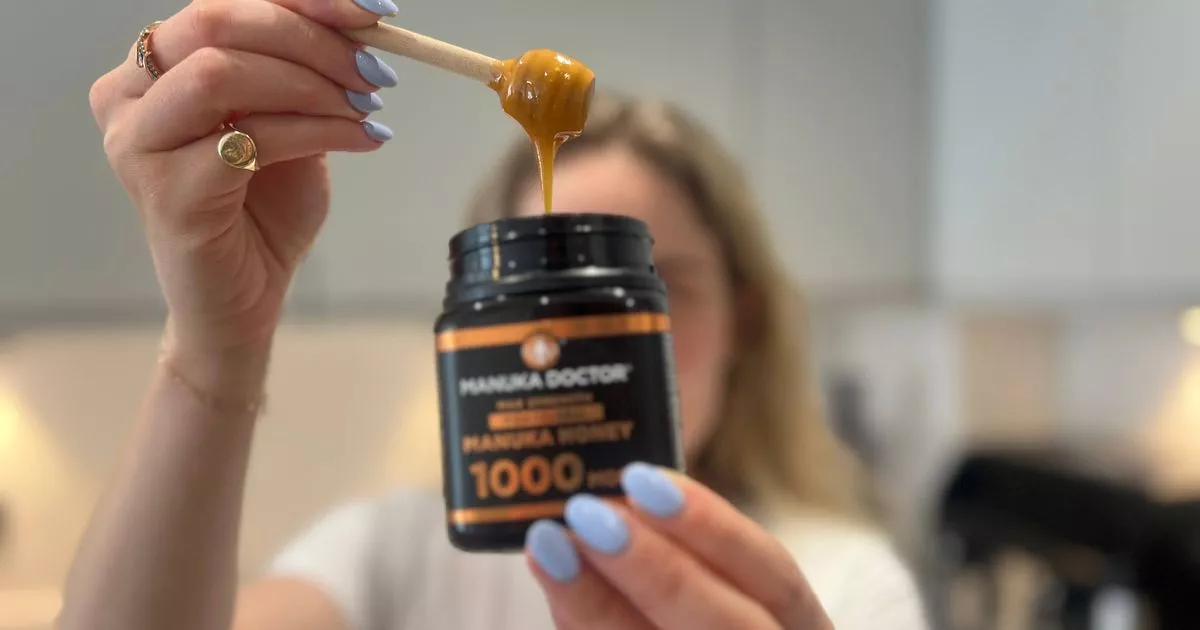Manuka honey has been hailed as a solution to help fight allergies and hay fever – I put it to the test to see if it could help me with my symptomsThis article contains affiliate links, we will receive a commission on any sales we generate from it. Learn more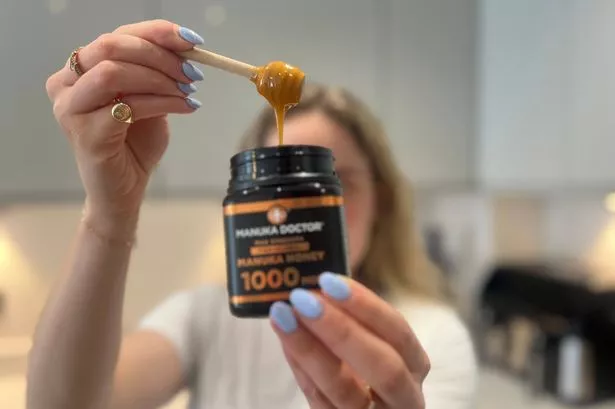
Like millions across the UK in spring and summer, I battle with the pesky daily symptoms of hayfever – blocked nose, headaches and swollen, itchy eyes, you name it. In a bid to alleviate these symptoms, I decided to put the Manuka honey theory to the test.
Touted as a potential remedy for allergies and hay fever, Manuka honey is praised for its possible symptom-relieving properties. While it’s not a magic cure, this natural product is packed with anti-inflammatory and antibacterial properties that are believed to aid sufferers.
But does it really provide relief? Intrigued by the growing buzz, I decided to give it a go myself. For 11 days, I took a teaspoon of Manuka Doctor MGO honey every morning – and I must say, I was taken aback by the benefits I experienced.
Read more: Edinburgh GP develops supplement to help stressed insomniacs sleep
Read more: Next dress ‘perfect for summer days’ that shoppers are buying ‘in every colour’
Currently, Manuka Doctor is offering a hefty discount in its ‘summer wellness sale’, slashing the price of its honey by up to 65%. For those like me seeking to ease their symptoms, this is an opportunity to bag it at a bargain, reports the Mirror.
I sampled three different strengths of honey – a basic multifloral of 70 MGO, a premium quality 540 MGO one and a 1000 MGO Max Strength one. Currently, the 70 MGO honey is on offer, marked down from £39 to just £10.92.
Get 65% off 640 MGO Manuka Honey
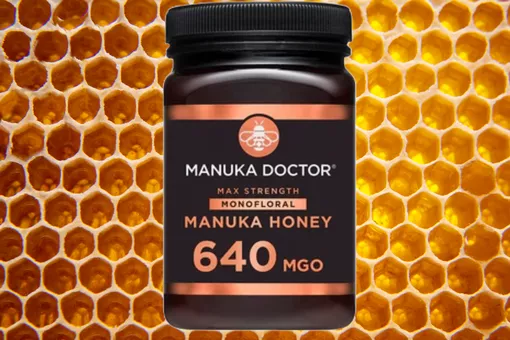
£116
£40.60
Manuka Doctor
For the best chance at relief, it’s recommended to use a high-strength MGO Manuka Honey for better anti-inflammatory effects. The 640 MGO honey is currently on sale, reduced by a huge 65%.
For maximum strength and an enhanced chance to alleviate symptoms, the higher 740 MGO manuka honey is now available for £38.08, down from its usual price of £136. It’s not just honey; Manuka Doctor also offers Allergy Relief Supplements at a much more affordable price – £6.30 for 30 capsules.
While I haven’t personally tried these, they could serve as an alternative for those who aren’t fans of honey but still want to reap its benefits.
About Manuka Doctor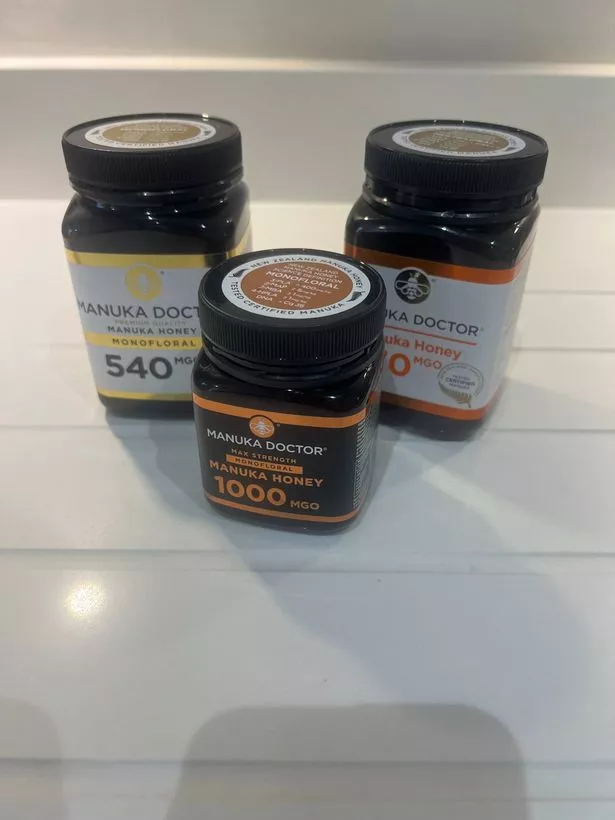 Manuka Honey comes in a variety of strengths
Manuka Honey comes in a variety of strengths
Sourced from New Zealand, their bee hives undergo lab testing to ensure they meet standards and are certified for use from hive to home. The brand reportedly has the backing of experts, including health professionals and doctors, such as ITV’s Dr Hilary Jones MBE.
A crucial component of this is MGO, or methylglyoxal. Without delving too deeply into scientific jargon, this molecule plays a key role in aiding the body’s natural healing process and regulating its immune response.
Of course, it’s not the only brand on the market. Holland and Barrett offer 70 MGO honey for £14.99, while LookFantastic sells a ‘Manuka Honey Blend’ with 30+ MGO for £9.50.
Four ways I incorporated Manuka Honey into my daily diet: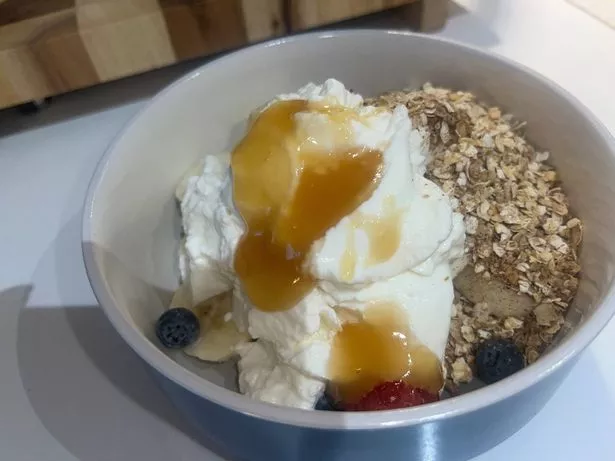 Yoghurt bowl with Manuka Honey drizzled over it
Yoghurt bowl with Manuka Honey drizzled over it
Every morning, I took a teaspoon of the strongest 1000 MGO honey. This ensured consistency and that I was consuming the same strength each day.
However, I did include additional doses with my meals.
My next favourite method of incorporating it into my days was at breakfast, either drizzled over a bowl of yoghurt or blended into a smoothie. This proved an easy way to disguise the taste, great for those who aren’t particularly fond of it.
It was also a doddle to incorporate into my lunch and dinner. I simply added a teaspoon of honey to homemade salad dressings three or four times.
For those who enjoy cooking, it could also be used in a meat marinade. One of my favourite dishes was halloumi hot honey, to which I just added some chilli flakes.
How long did it take to feel hayfever relief?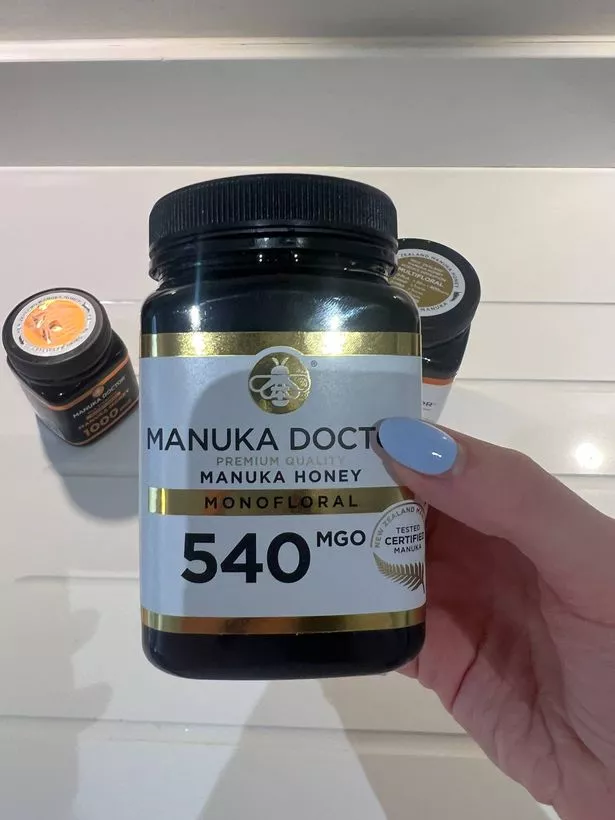 I’ve felt a lot of benefits from having Manuka honey and it’s something I’ll carry on for the foreseeable(Image: Harriet Morphy-Morris)
I’ve felt a lot of benefits from having Manuka honey and it’s something I’ll carry on for the foreseeable(Image: Harriet Morphy-Morris)
At the time of writing this, I’ve been consuming Manuka honey for 11 consecutive days, consistently takinga spoonful of honey each morning (sometimes neat, other times mixed into my breakfast or morning brew).
By the eighth day, I could confidently say that I’d felt some alleviation in my hayfever symptoms, my itchy eyes had lessened, and I was sneezing less frequently. The most noticeable improvement, which I began to feel on the third day, was with my throat.
Dry and inflamed, hay fever has always given me a sore throat, but testing out the manuka honey has certainly helped. As well as the high MGO contents, I believe this is likely due to the simple fact that honey is soothing, and even shop-bought honey is a popular remedy for colds – like hot honey and lemon tea.
Is Manuka Honey enough to help ease Hayfever symptoms?
After 11 days, I have experienced a significant improvement in my symptoms. Primarily, the absence of a blocked nose, itchy eyes, and sore throat.
All of which have nearly vanished.
However, it hasn’t made a difference to the skin symptoms I experience with hayfever – such as eye puffiness and rashes. I also noticed that the taste of stronger MGO honey is quite different from the overly sweet supermarket honey I’m accustomed to – it took some getting used to.
I do agree, however, that Manuka honey shouldn’t be viewed as a cure-all, but rather something to try in order to alleviate symptoms. Moving forward, I plan to take an antihistamine daily for assistance – like Allevia, which can be purchased on Amazon for £7.59 (although please consult your GP first to discuss best treatment plan).

